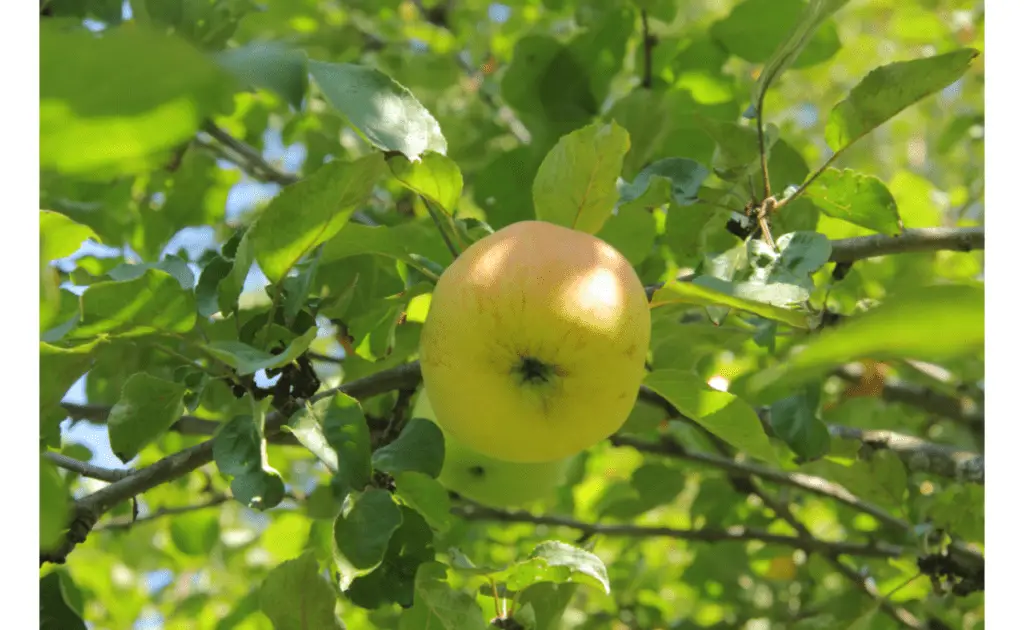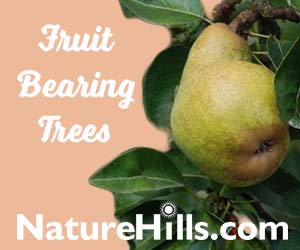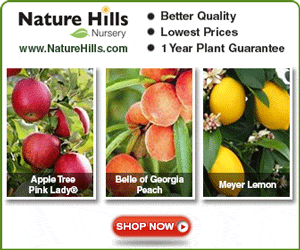
The fruits of most fruit trees may look tasty and smell inviting, but the actual taste of a fruit is a direct result of how it developed on the tree. A lack of bee pollination can be a major reason for a reduced crop yield on your fruit trees this year, which is why it’s important to understand what bees do for fruits from berry bushes to apple trees.
As a general rule bees are necessary for the pollination process and are the main reason your fruit tree is not producing. Bees transfer pollen from the male stamen of one blossom to the female pistil of another. This process is necessary for the fertilization of the flowers so that fruit can develop. If there are not enough bees around, the fruit will be pale, as if incompletely developed, and the seed formation is then also poor.
Neither plants nor bees have a central nervous system or any way of communicating with each other. However, they have evolved a mechanism that ensures successful cross-pollination: when a bee touches a flower’s stigma – the female part of a flower – with pollen from another flower, the stigmatic fluid causes the germination of only one pollen grain out of millions. The bee then flies to another blossom, where it rubs against its stigma, leaving pollen again on the stigma. Only now will that blossom’s fruit development take place.
What does this mean for the average homeowner with fruit trees in their backyard? If there are no bees around, the flowers will not be pollinated, and the tree’s yield will be reduced. Therefore, it’s important to plant bee-friendly plants near your fruit trees and to avoid using insecticides, as these can kill off bees.
There are ways to help increase the bee population in your backyard, such as installing a beehive or using a bee feeder. You can also help by not mowing your lawn too short and leaving some areas of tall grass for the bees to nest in. By doing these things, you can ensure that your fruit trees will produce a plentiful crop of delicious fruit. Find more ways to attract bees in this post!
How can we improve fruit tree production?
- -Plant bee-friendly plants near your fruit trees
- -Avoid using insecticides, as these can kill off bees
- -Install a beehive or use a bee feeder
- -Don’t mow your lawn too short and leave some areas of tall grass for the bees to nest in.
What is the best fertilizer for fruit trees?
The best fertilizer for fruit trees is a slow-release organic fertilizer that will provide the tree with the nutrients it needs over an extended period. You can also add compost to the soil around the tree to improve its fertility. Mulching the area around the tree with bark, straw, or leaves will also help to keep the soil moist and cool and will discourage weed growth. We took a closer look at finding the best fertilizers in our Best Fruit Tree Fertilizer post.
Why are my fruit trees not bearing fruit?
The most common reasons for a fruit tree not bearing fruit are lack of pollination, poor fertilization, and improper pruning. Pollination can be affected by the presence or absence of bees, while fertilization and pruning problems can be caused by incorrect application of fertilizer or by poor timing of pruning.
Why is my fruit tree losing its leaves?
Fruit trees may lose their leaves for several reasons, including damage from pests or diseases, problems with the soil’s pH levels, over-fertilization or malnutrition due to an excess of nitrogen or salt in the soil, improper pruning, or drought conditions. Learn how to test your soil here.
How can I tell if my fruit tree is diseased?
Many different diseases can affect fruit trees, so it’s important to be able to identify the symptoms of each disease. Some common symptoms include wilting leaves, yellowing leaves, black spots on the leaves or fruit, dieback of branches, and gummy lesions on the bark. If you suspect that your fruit tree is diseased, it’s best to consult a professional arborist for diagnosis and treatment.
What should I do if my fruit tree is infested with pests?
If your fruit tree is infested with pests, you will need to take action to get rid of them. Some common fruit tree pests include aphids, ants, borers, cankerworms, codling moths, Japanese beetles, and scale insects. If the infestation is severe enough that chemical insecticides are required to control it or if you don’t feel that you have the skills and knowledge needed to treat your tree without harming it in the process, you should contact a professional arborist for assistance. We look at organic ways to get rid of bugs in this post.
How do I fertilize my fruit tree?
To maximize fruit production, your fruit trees will need to be fertilized on a regular basis. The best type of fertilizer for your trees is a slow-release organic fertilizer that will provide them with nutrients at a steady rate over an extended period. Once every year, you can also add compost to the soil around your fruit tree to improve its fertility and mulching the area with bark, straw, or leaves will discourage weed growth and help keep the soil moist and cool.
How do I prune my fruit tree?
Pruning is a very important part of fruit tree care, and it must be done at the right time of year to be effective. Improper pruning can cause a fruit tree to become malnourished or diseased, so it’s important to know how to do it correctly. The best time to prune a fruit tree is in the winter when it is dormant. Always use sharp, clean tools when pruning and make sure that you cut the branch off at its point of origin- don’t leave a stub.
What should I do if my fruit tree is not producing fruit?
The most common reasons for a fruit tree not bearing fruit are lack of pollination, poor fertilization, and improper pruning. Pollination can be affected by the presence or absence of bees, while fertilization and pruning problems can be caused by incorrect application of fertilizer or by poor timing of pruning. If your fruit tree is not producing fruit, you should consult a professional arborist for diagnosis and treatment.
This post contains affiliate links. If you make a purchase through these links, we may receive compensation at no additional cost to you.



